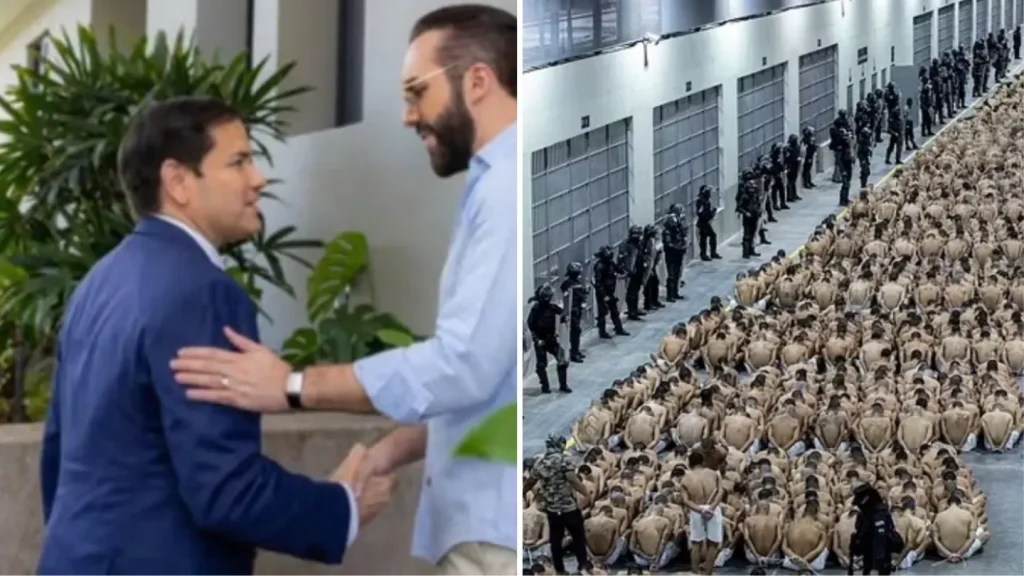In a move that has sparked widespread debate, the United States has entered into a highly unusual migration agreement with El Salvador.
This deal comes amid growing concerns about border security and the handling of deportees from various countries.
U.S. Secretary of State Marco Rubio announced the agreement after a meeting with El Salvador’s President Nayib Bukele.
He described it as “the most unprecedented, extraordinary migratory agreement anywhere in the world.”
While past deals have focused on repatriating a country’s own nationals, this agreement goes much further.
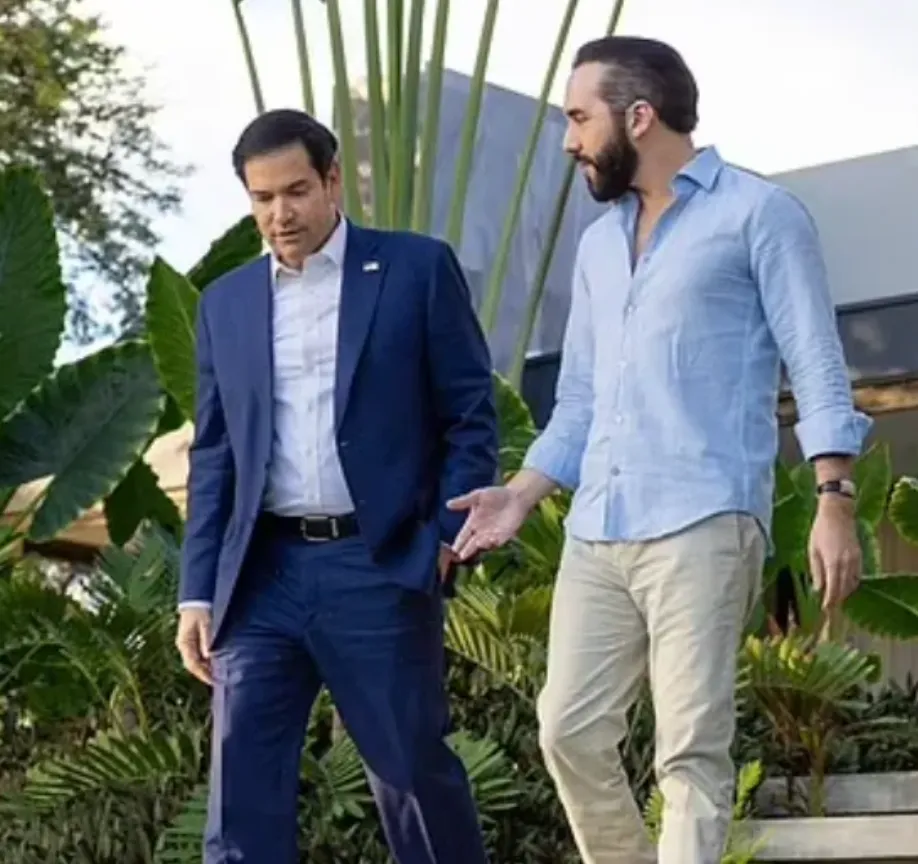
El Salvador has now committed to accepting deportees from any country, including individuals convicted of serious crimes.
Rubio, who was visiting El Salvador as part of a five-nation Central American tour, praised the country’s willingness to support U.S. immigration policies.
He stated that the arrangement will strengthen security efforts and help manage migration challenges more effectively.
One of the most controversial aspects of the deal is that El Salvador has agreed to house dangerous criminals currently serving sentences in the United States.
This would include individuals of all nationalities—even U.S. citizens and legal residents convicted of violent crimes.
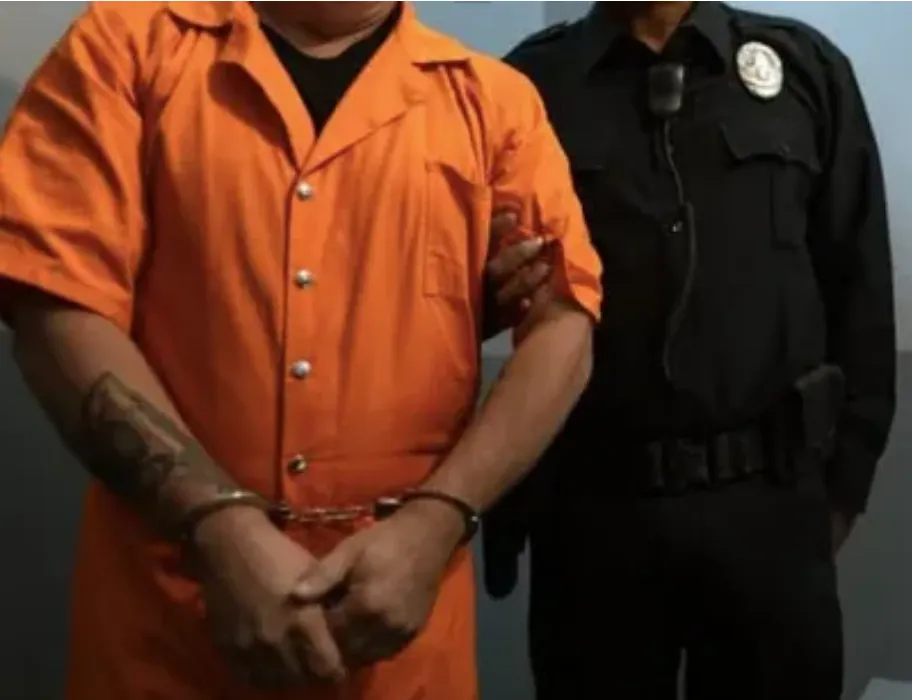
Bukele’s administration has positioned the agreement as an economic and security initiative.
El Salvador will charge a fee for incarcerating these individuals, which Bukele claims will help sustain the country’s prison system.
The agreement has raised significant human rights concerns, particularly regarding El Salvador’s prison conditions.
Critics argue that the country’s facilities are overcrowded and plagued with inhumane conditions, making them unsuitable for housing foreign prisoners.
El Salvador recently opened the Terrorism Confinement Center (CECOT), a massive prison designed to hold up to 40,000 inmates.
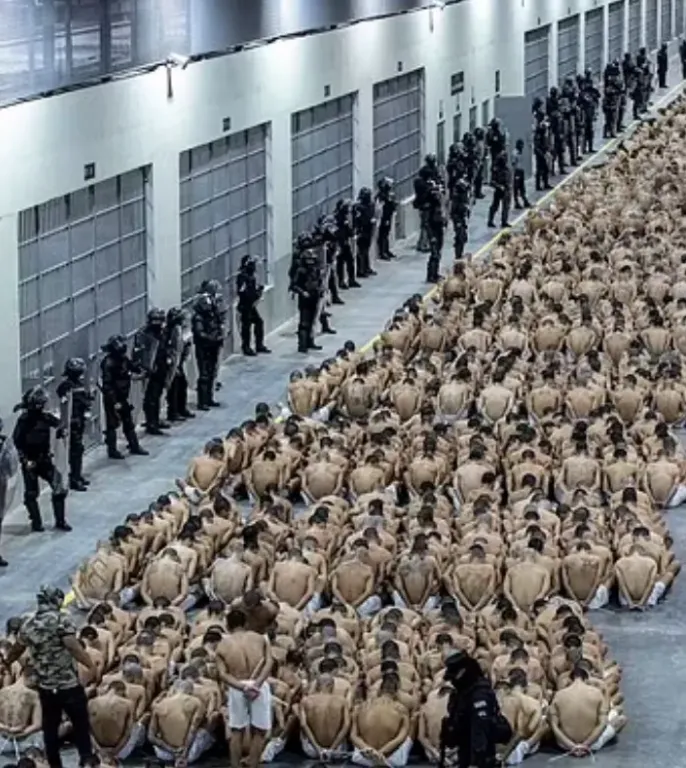
Bukele insists that this facility can accommodate the influx of criminals under the new agreement.
Despite these assurances, human rights organizations warn that El Salvador lacks clear policies for handling asylum seekers and refugees.
They fear that this deal could lead to abuses, particularly for individuals deported under unclear legal circumstances.
The legal implications of sending U.S. citizens to foreign prisons have also been called into question.
Under U.S. law, American citizens cannot be deported, raising concerns about the enforceability of this aspect of the agreement.
Rubio’s tour of Central America has focused heavily on immigration enforcement and security cooperation.

Following the announcement of the El Salvador deal, he confirmed similar agreements are being pursued with other nations.
The U.S. has already secured repatriation deals with Colombia, India, Ecuador, Guatemala, Honduras, and Venezuela.
These agreements aim to increase deportations and reduce the number of undocumented migrants reaching the U.S. border.
The El Salvador deal is particularly striking due to its inclusion of violent criminals and foreign nationals.
Bukele framed the move as an opportunity to deepen ties with the U.S. while addressing crime in his own country.
However, opposition voices within El Salvador, including the leftist Farabundo Martí National Liberation Front, have condemned the agreement.

They argue that it treats the region as Washington’s “dumping ground” for unwanted individuals.
As part of broader immigration efforts, the U.S. has also been pressuring Panama to reduce China’s presence in the Panama Canal.
Rubio has warned that if Panama does not act, the U.S. may take matters into its own hands.
The Biden administration has also faced criticism for its handling of deportations and border enforcement.
Some officials see the El Salvador deal as a drastic but necessary measure to curb illegal immigration.
In a significant restructuring of U.S. foreign aid, Rubio has also been placed in charge of USAID, the country’s main international development agency.
Thousands of USAID employees have already been laid off as part of efforts to streamline operations.
Rubio insists that certain critical aid programs will continue, but many details remain unclear.
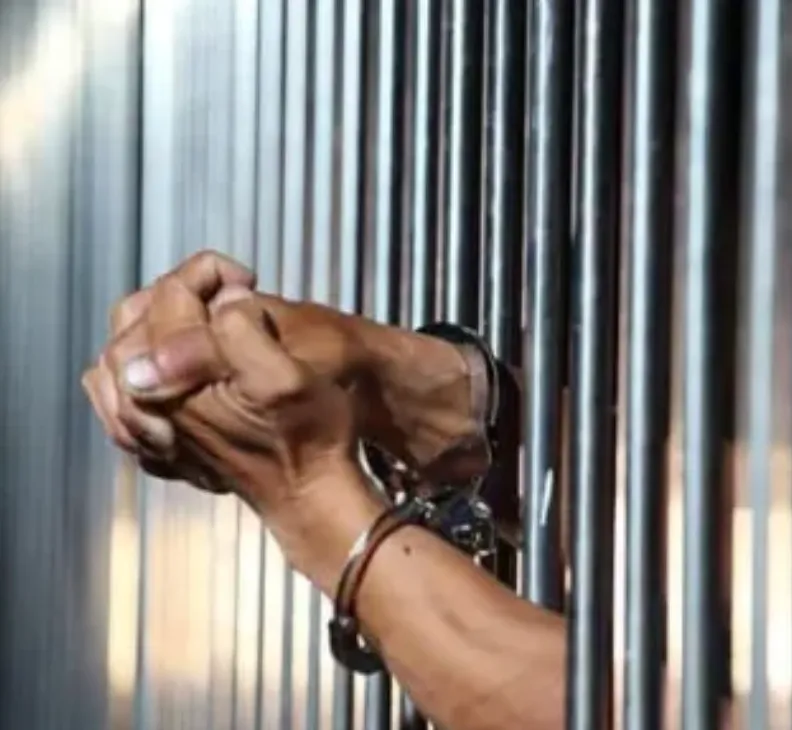
This shift could have lasting implications for U.S. foreign assistance and diplomatic relationships in the region.
Breaking the news in a shocking revelation, El Salvador has now officially agreed to incarcerate foreign criminals deported from the United States.
This includes individuals from any country, as well as American citizens and legal residents who have been convicted of violent crimes.
This aspect of the agreement is unprecedented and has never before been offered by any nation.
The U.S. is now exploring the possibility of outsourcing part of its prison system to El Salvador, raising major legal and ethical questions.
The full impact of this deal remains uncertain, but it is expected to face intense scrutiny in both countries.
As the agreement moves forward, debates over its consequences for human rights, security, and immigration policy are likely to intensify.
Featured Image Credit: (CanvaPro)

